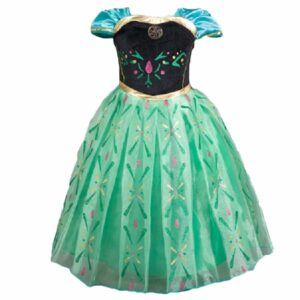Being a new parent and experiencing the world in a whole new way with your baby is an incomparable experience. You go through so many different phases of development together, you watch them grow, explore the world, and form new habits.
Among the most exciting times during your baby’s first years is the process of growing teeth and later losing them only to get those permanent, perfect adult teeth. As interesting as it may be for us to observe this process, the period may be one that brings a bit of stress and uncertainty to your baby.

You may have seen other parents use products like a baby toy rattle and teether or may have heard that once the teeth start growing the baby starts chewing its pacifier even more. Are these facts true and why do they happen?
In order to provide them with full support and understand what they are going through, we’ve prepared a guide that will answer the most popular questions when it comes to baby teeth. After reading this article you’ll be ready to get your baby through this period smoothly and confidently.
Let’s go!
When do baby teeth start growing?
One of the first questions that new parents ask is when do baby teeth actually start growing. It’s especially important to be prepared and have an understanding of the different phases that your baby will go through in its growth towards an adult. By knowing what’s coming next you will be able to have a planned reaction and solution to every problem, which can save you time and a lot of stress.
It is natural for babies to start growing their teeth between the age of 6 and 12 months. However, keep in mind that the first tooth can appear at different times and this is entirely dependent on your baby’s body. In some cases, your little one may celebrate their first birthday with no first tooth on the horizon. This isn’t a reason to worry.
When babies are at the age of 3 months, they are at the peak of exploration. Everything surrounding them is new and intriguing and one of the most common ways for them to become familiar with the outside world is by using their mouths. You will notice a rise in saliva and a new habit of putting their hands in their mouth. At this stage, it is normal for parents to get confused and assume that this is a sign that the first teeth are about to pop up. Be patient and remember that this usually takes place around the sixth month.
How will you know that your baby is teething?
Another popular concern is whether parents will be able to spot the process taking place. You may be wondering about the symptoms that your baby will be showing when the first teeth start to develop. These include things like:
- Increased chewing on different objects
- Fretful and irritating behavior
- A flushed check
- Ear rubbing
- An increase in dribbling
- Sore gums and redness
These signs will help you acknowledge the fact that your little one may be about the get their first tooth. Observe closely and keep an eye on the development once you are sure that the process has begun.
What order do baby teeth come in?
There is a certain order in which baby teeth come in. Of course, not all babies are the same and if your little one is growing their teeth at a different sequence, don’t be frightened. Visit your doctor regularly and observe the growth.
In general, the bottom front teeth are the first one to appear. This normally takes place during the 5th to 6th month. The next ones to come out are the top front teeth. If the growth happens in the standard growth times, the front teeth will start growing out between the 6th and 8th month. By this time, your baby will look adorable with their bottom and front teeth starting to show! It’s a nice idea to take pictures of the different stages of your little one’s teeth growing to have an adorable memory that you can share with your little one when they grow up!

The lateral incisors or the teeth on the side of the top front teeth are up next. You can expect them to show up at around the 9th to 11th month. The same teeth on the lower part of the mouth are to follow between the 10th and 12th month. Now your little one is getting more confident in chewing their food better and is probably biting on different items as a result of the itchy sensation.
Around the 12th to 16th month, the first molars or back teeth are bound to come out. After them it is time for the canines – the teeth found at the back of the mouth. This normally happens when the baby is 16 to 12 months old. Finally, you can expect to see the second molars making their way out, which usually takes place on the 20th to 30th month.
In short, by the time your little one reaches 2 and a half years old, all of their milk teeth should have grown.
Are there baby teeth that are more painful than others?
The amount of pain that your little one will experience as their teeth start growing is highly individual and different for every baby. However, it is safe to say that the first tooth or teeth that start growing will cause a lot of pain, simply due to the fact that this will be a first-timer for your baby. They will not be prepared for this weird and unpleasant feeling and are likely to try to tell you by crying or becoming more irritated than usual.
In addition, considering that molars are significantly larger than the rest of the teeth, it is normal for them to cause a bit of extra pain when growing. This is a time for you to be understanding as a parent and provide your little one with the support and love it needs to get through this difficult period.
When do baby teeth fall out?
It is interesting to observe the sequence in which your baby’s teeth will fall out. The first ones to go are usually those that were the first to grow out. You can expect that the central incisors will be the first teeth your little one says goodbye to. As the tooth prepares to fall out it becomes loose and provides space for the permanent teeth to grow into. This normally takes place when your child is at the age of 6 or 7.
The next ones to make room for new and permanent teeth are the upper central incisors and the order continues.
Losing teeth is a special time in a child’s life and should be welcomed with care. Prepare your little one by introducing them to the fact that their milk teeth will eventually fall off to save them the stress of thinking something is wrong. In addition, you could share stories about the tooth fairy and other exciting tales that will help make the process fun and enjoyable.
Keep in mind that losing teeth can be accompanied by pain and discomfort. Offer your little one your support and help them by making sure they take proper care of the mouth and gums after the tooth has fallen off.
For instance, some of the things you could do is ensure the mouth is clean by rinsing with saltwater products to get the gums in perfect hygiene. Once the tooth falls off a small socket opens up in the empty space. You can cover this zone by taking advantage of gauze. Remind your little one to avoid spitting as this can lead to bleeding and discomfort. You can also place a cold, damp piece of cloth to help your child cope with any pain once the bleeding has stopped.
Do baby teeth fall out on their own?
Generally speaking, yes. In some cases, your little one won’t even notice that their tooth has fallen as this can happen while they are eating and chewing on food. However, on other occasions, the roots of the tooth may be harder and the tooth may need a small extra push in order to fall off. In this case, you may wiggle the tooth gently to help it come out.
Make this special time easy to love
Although your baby is probably not going to remember a lot about the process of growing and losing teeth, this is a special time in their life and you have the privilege of being by their side through it. We hope this article has helped you get more information on the process and has made you more aware of all there is to baby teeth!





































